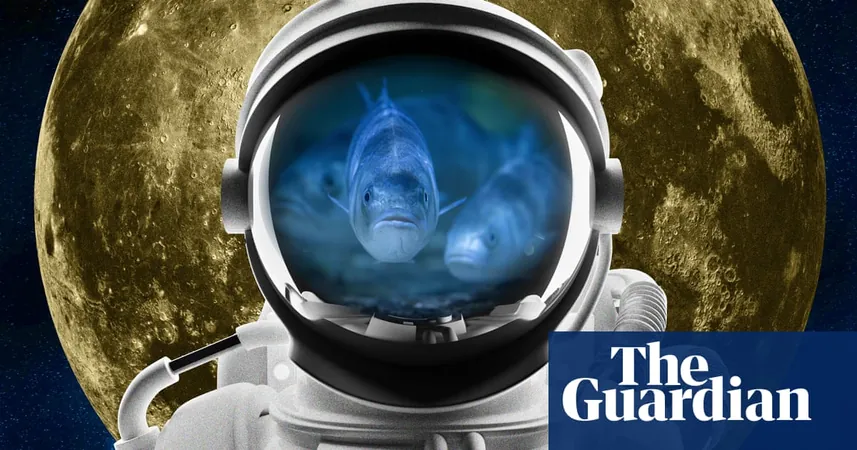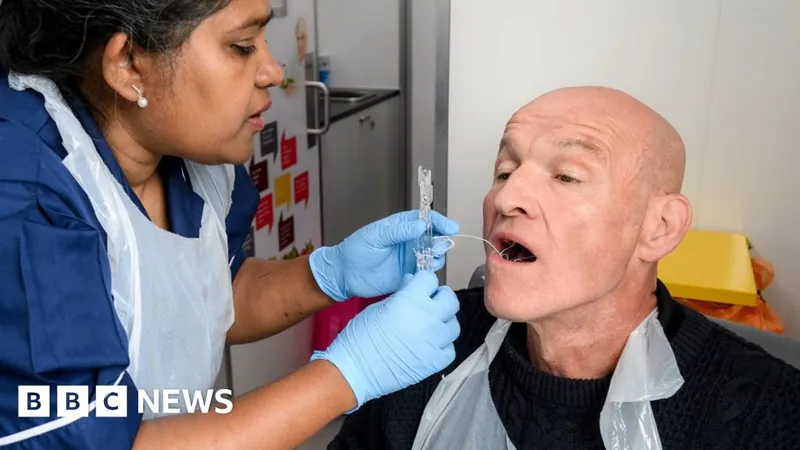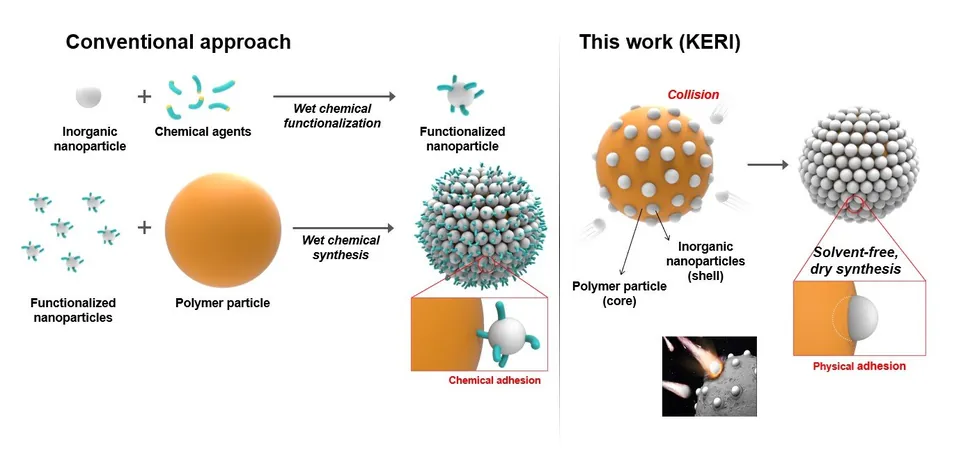
Fish Farming on the Moon: Sea Bass Set to Become Astronauts' New Protein Source!
2025-04-28
Author: Mei
A Revolutionary Project Launches from France
In a quiet facility nestled near Palavas-les-Flots, southern France, sea bass are gearing up for an extraordinary journey. These aren't your typical fish; they are destined to become the first marine life launched into space as part of the groundbreaking Lunar Hatch project.
Meet the Mastermind Behind Lunar Hatch
Dr. Cyrille Przybyla, a marine biologist at the French National Institute for Ocean Research, is the visionary steering this ambitious initiative. His goal? To determine if sea bass can be farmed on the Moon—and eventually Mars—to provide fresh, nutritious food for future astronauts.
Feeding Astronauts in Space: A Fishy Solution
Dr. Przybyla passionately explains, "Fish is an excellent source of protein, packed with Omega-3 and essential B vitamins crucial for astronauts.’ The innovative plan involves launching fertilized sea bass eggs into space. They will hatch in transit to the International Space Station (ISS), paving the way for future aquaculture on extraterrestrial soil.
From ‘Aquastronauts’ to the Sea Bass Revolution
While space fish farming may sound futuristic, sending aquatic life into orbit isn’t novel. Small fish like mummichogs have been on the cosmic express since 1973. However, Lunar Hatch marks the first opportunity to cultivate fish as a sustainable food source in space.
Creating a Sustainable Food Chain—On the Moon!
Lunar Hatch isn't just about fish farming; it's about creating a self-sustaining ecosystem. Using lunar ice, wastewater from the fish will nurture micro-algae for filtrating organisms and bivalves. Even the sea bass wastes will recycle through shrimp and worms, making this initiative a model of zero waste.
The Science Behind Space Launches
The ambitious project has been in the works for nearly a decade. Following ESA's call for lunar project ideas, Przybyla secured funding in 2018 and has since tested whether fertilized eggs can survive the intense vibrations of a rocket launch.
A Race Against Time and Competition
With hopes resting on CNES and NASA's Kennedy Space Center, Przybyla awaits a mission opportunity to launch his sea bass experiment. Competing interests grow as China reveals their own aquaculture research for their space station—highlighting a new era of space exploration.
Bridging Space and Earth
The implications extend beyond the cosmos. Dr. Przybyla notes that the principles of the Lunar Hatch project could greatly benefit Earth, particularly in isolated communities where sustainable food sources are essential for environmental preservation and economic viability.
As we stand on the brink of a new frontier, the future of food for astronauts—and perhaps even underserved populations on Earth—holds infinite possibilities.





 Brasil (PT)
Brasil (PT)
 Canada (EN)
Canada (EN)
 Chile (ES)
Chile (ES)
 Česko (CS)
Česko (CS)
 대한민국 (KO)
대한민국 (KO)
 España (ES)
España (ES)
 France (FR)
France (FR)
 Hong Kong (EN)
Hong Kong (EN)
 Italia (IT)
Italia (IT)
 日本 (JA)
日本 (JA)
 Magyarország (HU)
Magyarország (HU)
 Norge (NO)
Norge (NO)
 Polska (PL)
Polska (PL)
 Schweiz (DE)
Schweiz (DE)
 Singapore (EN)
Singapore (EN)
 Sverige (SV)
Sverige (SV)
 Suomi (FI)
Suomi (FI)
 Türkiye (TR)
Türkiye (TR)
 الإمارات العربية المتحدة (AR)
الإمارات العربية المتحدة (AR)